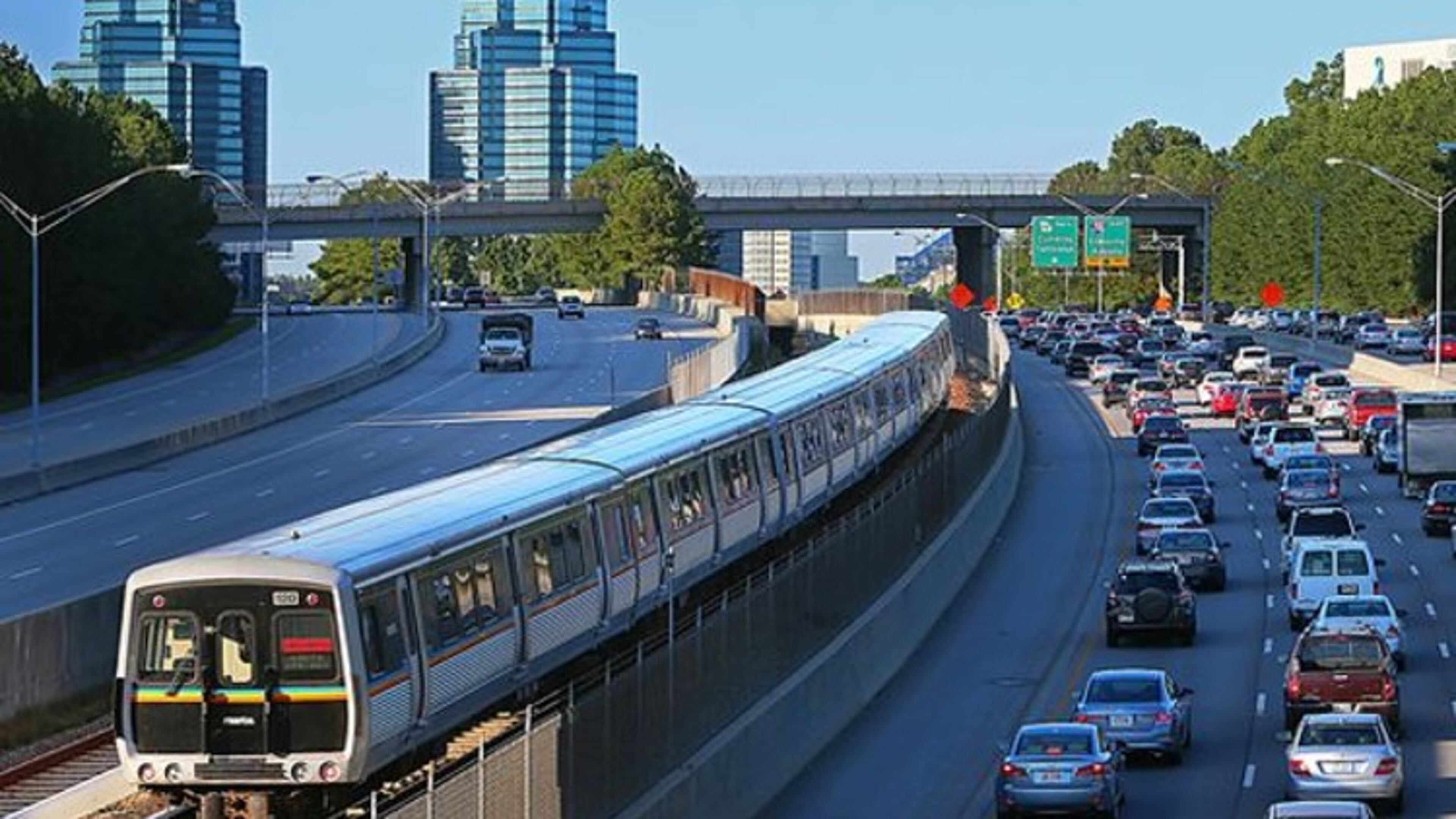MARTA tax increase begins in Atlanta, others follow in Fulton April 1

If you shop in Atlanta, get ready to dig deeper in your wallet for a latte or a new pair of jeans.
Starting Wednesday, the city’s sales tax will inch up from 8 percent to 8.5 percent. And come April 1, the tax will rise again, to 8.9 percent.
- FLASHBACK PHOTOS: MARTA rail service in Atlanta
- PHOTOS: That '70s commute: Atlantans flock to MARTA
- PHOTOS: A history of mass transit in Gwinnett
That means a $5 latte — $5.40 last week when taxed at 8 percent — will cost an additional 3 cents Wednesday and an additional 2 pennies beginning on April Fool’s Day. Taxes in the rest of Fulton County, outside of Atlanta, will also increase April 1.
That means that same $5 latte in Fulton County outside Atlanta will go from $5.35 — taxed at 7 percent — to $5.39 on April 1 from Milton to Palmetto.
The hit to your pocketbook is a result of three separate sales tax increases that passed last November.
- MARTA: A half-penny sales tax in the city of Atlanta will raise $2.5 billion over 40 years, beginning March 1.
- Atlanta: A four-tenths of a penny sales tax over five years will raise more than $300 million for other transportation projects, beginning April 1.
- Fulton County: Outside Atlanta, a three-quarter penny sales tax over five years will raise as much as $655 million for road, bridge and pedestrian improvements, beginning April 1.
The money will fund a host of projects.
The MARTA tax is a boost for the transit system that has been criticized for limited coverage of the city, reduced hours of operations and offering few options for neighborhoods outside of the central core.
“MARTA is weighing a variety of opportunities, and we will work collaboratively with public officials and neighborhood leaders to deliver a more layered, multimodal transit system that connects communities,” said MARTA general manager and CEO Keith Parker.
Outside Atlanta, in the rest of Fulton County, voters narrowly passed a sales tax hike, raising the tax to 7.75 percent in the county.
The Department of Revenue will start distributing the tax money about a month after collections begin, so some road resurfacing projects could start in Fulton this spring. Todd Long, Fulton County’s chief operating officer, said people always notice when their taxes go up — but he hopes they will also make note of what they’re getting for their money.
“The goal here is to know you’re getting something in return,” he said.
For many Atlantans, the sales tax increase will likely have a minimal impact, said Tom Smith, a labor economist with the Goizueta Business School at Emory University. Consumers tend to absorb the cost of gradual increases quickly when they are just a few pennies here or there, he said.
Those on the margins, however, may find it tougher to manage the increase because it commands more of their disposable income, he said. The sales tax increases also show up on phone, electric and gas bills, which the poor often struggle to pay.
“They are going to feel a little more of a pinch,” he said.
Karen Bremer, chief executive officer of the Georgia Restaurant Association, said diners are generally not scared off by tax increases. Restaurateurs may hear complaints from regular customers who get the same thing whenever they eat out, but that usually subsides over time as the diners get used to the new costs.
Customers on a fixed income, however, may cut back the frequency of their visits because they can’t look forward to a pay raise to help them absorb the increased costs.
“You get what you get,” she said of their incomes.
Long, in Fulton County, said he hopes the "monumental" tax will make a difference across metro Atlanta. While Cobb and Gwinnett counties for years have been spending sales tax money on transportation projects, this is a first in Fulton and Atlanta.
MARTA will use the money, which will be collected over the next 40 years, to fund improvements to the system. Possible projects include new stations between existing transit stops, a light rail line connecting Emory University and the CDC to Lindbergh Station and the return of bus routes that were either eliminated or had their hours reduced after the 2008 financial crisis.
Several bus routes have already increased the frequency of service and longer night and weekend hours because of the vote’s passage, Parker said. Those include routes for Ponce de Leon/East Lake, Hightower/Moore’s Mill and Campbellton Road/Greenbriar.
"As we start re-imagining the MARTA system, we will continue to hold 'listening sessions' and 'More MARTA' pop-up meetings throughout the city to get our stakeholders' perspectives on these important initiatives that impact Atlanta and the region," Parker added.
Atlanta officials have said it will use the funding to purchase the remaining right of way for the Atlanta BeltLine, better synchronize traffic signals and to add more sidewalks and bike lanes.
The other cities in Fulton County plan to use their money for road widenings and resurfacing, bridge improvements, expanded sidewalks and other projects.
“Everybody goes through Fulton County,” Long said. “All of these investments in infrastructure help the region as a whole.”



